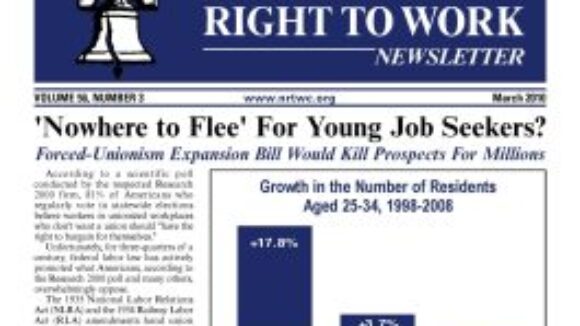Right-to-Work Laws = Liberty, Prosperity, and Quality of Life
Right-to-Work Laws: Liberty, Prosperity, and Quality of Life
By Professor Richard Vedder (Condensed from the original 10-page Article appearing in the Cato Journal, Vol. 30, No. 1 (Winter 2010). Produced by the Cato Institute. Richard Vedder is Edwin and Ruth Kennedy Distinguished Professor of Economics at Ohio University.)
The most essential ingredient embodied in the liberty championed by the classical liberal writers of the Enlightenment and beyond is individual choice and right of expression—the right of persons to say what they think, decide for themselves what groups that want to join, what religion that want to profess, what person they want to marry, what goods they want to buy or sell, and what persons they want to represent them where necessity requires collective decision making.
One important economic dimension of individual liberty is the right to sell one’s labor services without attenuation—that is, without limits on the terms of the agreement (e.g., wage rates and hours of work), or who will represent the worker in reaching those terms.
The eroding of employment liberty in the United States had begun before the 1930s … legislation in the early 1930s such as the Davis-Bacon Act and, to a lesser degree, the Norris-LaGuardia Act began to chip away at bargaining freedom, but it was the National Labor Relations Act of 1935 (Wagner Act) that dramatically revolutionized employment contracts, severely restricting the freedom of workers and employers to reach individual bargaining arrangements.
